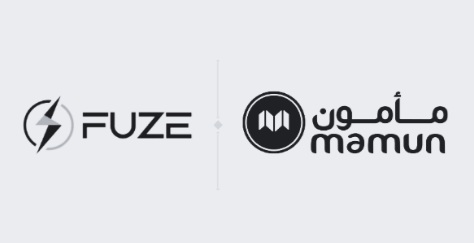Qatar Financial Centre (QFC) CEO Yousuf Al Jaida made it clear during the Qatar Economic Forum hosted by Bloomberg, that while Qatar was big on digital assets in the realm of tokenization, it was a no no for crypto, but actually a yes for stablecoins.
In a panel discussion entitled MENA & Crypto: What Comes Next?, Al Jaida stated, ” While crypto is a no no ” and is often the first thing regulators and the public associate with digital assets, it is just one vertical, there are other types of digital assets which could be any type of value transferred over the blockchain including stablecoins, central bank digital currencies (CBDCs), security tokens, and utility tokens.”
The statement eludes to the fact that while Qatar Financial authority which offers an onshore legal environment where businesses can set up and are taxed with no physical boundaries, crypto might not be in play, but stablecoins which he mentioned are one of the digital assets that he sees could be part of the ecosystem.
Already Qatar has regulated DLT and Blockchain infrastructure, digital assets for tokenization including security tokens and utility tokens. It has even been working on its own CBDC, so with the inclusion of stablecoins as part of what Qatar calls digital assets, their regulation might not be that far away.
He emphasized that the focus is on building a robust, regulated framework to digitize real-world assets and unlock new economic opportunities, particularly in real estate and Islamic finance.
Al-Jaida explained that given Qatar Central Bank’s strict stance on crypto with bank trading being heavily regulated, QFC has taken a different route.“Our entire focus, resources, and investment have gone into tokenization. Tokenization solves a real problem in the economy. It democratizes access to illiquid real assets like real estate and private securities.”
With global tokenized assets expected to hit $30 trillion by 2030, including $15 trillion in illiquid assets and $1 trillion in security tokens, the CEO sees a clear opportunity.“This is where our regulations are focused. We launched our Digital Asset Regulations in 2024, along with the Investment Token Rulebook and security token guidelines. These allow us to license digital asset firms swiftly and efficiently within the QFC framework,” he said.
One key priority for QFC is unlocking liquidity in Qatar’s oversupplied real estate sector.“There’s a huge concentration of ownership in towers across West Bay and Lusail, often held by just a few landlords with ticket sizes of $500m and upwards,” said Al-Jaida. He mentioned that tokenizing even one or two towers could bring tremendous economic benefit and access.
However, to manage risk and ensure regulatory confidence, QFC is deploying a“laboratory” approach. Tokenizing private shares within its own corporate registry, Special Purpose Vehicles (SPVs) or holding companies are then created to hold tokenized assets, beginning with real estate.
“This approach allows us to experiment within a controlled environment. If anything goes wrong, the risk is contained within the QFC – not the broader economy,” he stressed. QFC also sees potential in securitizing other asset classes, including Islamic financial products, corporate bonds, and eventually, energy infrastructure.“ We’re looking to use tokenization to drive inclusive access and financial innovation,” said Al-Jaida.
Why stablecoins and tokenization go hand in hand
At the same event, in a panel on ” Striking the Balance Crypto and Regulation”, stablecoins was also one of the topics of the hour. It was also noted that stablecoins would be needed for tokenized assets. Lucy Gazmararian, Founder & Managing Partner, Token Bay Capital, noted that stablecoins which are effectively fiat money essentially on blockchains is the final piece of the crypto puzzle because it completes the entire trading cycle.” She notes that as more real world assets are issued and traded on blockchain with players like BlackRock, Franklin Tempelton
She explained, ” As we see more real world tokenizing treasuries you need that cash leg of the trade to settle on blockchain transition to move finance onto blockchain. By putting USDT on chain you are driving new demand for collateral that backs those stablecoins.
Each USD is backed short term US treasury debt, because stablecoins getting into hands of new participants, non US people couldn’t get banks accounts in dollars, demand for US dollar.”
Anatoly Crachilov, CEO & Founding Partner, Nickel Digital Asset Management also noted that while traditional banking were overcharging clients, stablecoins do it for a fraction of a cent.
Usman Ahmed, Co-Founder and CEO of Zodia Markets believes that Tether will remain dominant because of the high adoption. He notes that stablecoin market capital is expected to increase from 230 billion USD in 2025 to over 2 trillion USD in 2028, a 10 fold increase in the next two years. He notes, ” I don’t see a bank stablecoin or government one coming in and overtaking Tether, but stablecoins will need to get into the banking system because why wait for dollar market to open, sometimes in seven hours, that is 7 hours of capital not being utilized.”


















